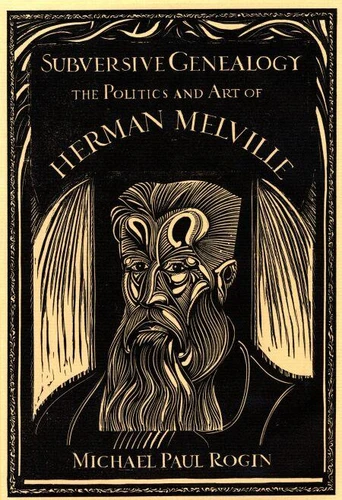SUBVERSIVE GENEALOGY
Par :Formats :
Disponible dans votre compte client Decitre ou Furet du Nord dès validation de votre commande. Le format ePub protégé est :
- Compatible avec une lecture sur My Vivlio (smartphone, tablette, ordinateur)
- Compatible avec une lecture sur liseuses Vivlio
- Pour les liseuses autres que Vivlio, vous devez utiliser le logiciel Adobe Digital Edition. Non compatible avec la lecture sur les liseuses Kindle, Remarkable et Sony
- Non compatible avec un achat hors France métropolitaine
 , qui est-ce ?
, qui est-ce ?Notre partenaire de plateforme de lecture numérique où vous retrouverez l'ensemble de vos ebooks gratuitement
Pour en savoir plus sur nos ebooks, consultez notre aide en ligne ici
- Nombre de pages368
- FormatePub
- ISBN978-0-307-83094-4
- EAN9780307830944
- Date de parution28/08/2013
- Protection num.Adobe DRM
- Taille2 Mo
- Infos supplémentairesepub
- ÉditeurKnopf
Résumé
In this major reconsideration of Herman Melville's life and work, Michael Paul Rogin shows that Melville's novels are connected both to the important issues of his time and to the exploits of his patrician and politically prominent family-which, three generations after its Revolutionary War heroes, produced an alcoholic, a bankrupt, and a suicide. Rogin argues that a history of Melville's fiction, and of the society represented in it, is also a history of the writer's family.
He describes how that family first engaged Melville in and then isolated him from American political and social life. Melville's brother and father-in-law are shown to link Moby-Dick to the crisis over expansion and slavery. White-Jacket and Billy Budd, which concern shipboard conflicts between masters and seamen, are related to an execution at sea in which Melville's cousin played a decisive part.
The figure of Melville's father haunts The Confidence Man, whose subject is the triumph of the marketplace and the absence of authority. A provocative study of one of our supreme literary artists.
He describes how that family first engaged Melville in and then isolated him from American political and social life. Melville's brother and father-in-law are shown to link Moby-Dick to the crisis over expansion and slavery. White-Jacket and Billy Budd, which concern shipboard conflicts between masters and seamen, are related to an execution at sea in which Melville's cousin played a decisive part.
The figure of Melville's father haunts The Confidence Man, whose subject is the triumph of the marketplace and the absence of authority. A provocative study of one of our supreme literary artists.
In this major reconsideration of Herman Melville's life and work, Michael Paul Rogin shows that Melville's novels are connected both to the important issues of his time and to the exploits of his patrician and politically prominent family-which, three generations after its Revolutionary War heroes, produced an alcoholic, a bankrupt, and a suicide. Rogin argues that a history of Melville's fiction, and of the society represented in it, is also a history of the writer's family.
He describes how that family first engaged Melville in and then isolated him from American political and social life. Melville's brother and father-in-law are shown to link Moby-Dick to the crisis over expansion and slavery. White-Jacket and Billy Budd, which concern shipboard conflicts between masters and seamen, are related to an execution at sea in which Melville's cousin played a decisive part.
The figure of Melville's father haunts The Confidence Man, whose subject is the triumph of the marketplace and the absence of authority. A provocative study of one of our supreme literary artists.
He describes how that family first engaged Melville in and then isolated him from American political and social life. Melville's brother and father-in-law are shown to link Moby-Dick to the crisis over expansion and slavery. White-Jacket and Billy Budd, which concern shipboard conflicts between masters and seamen, are related to an execution at sea in which Melville's cousin played a decisive part.
The figure of Melville's father haunts The Confidence Man, whose subject is the triumph of the marketplace and the absence of authority. A provocative study of one of our supreme literary artists.



